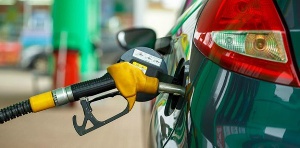 CEMSE projects a hike in fuel prices in July 2025
CEMSE projects a hike in fuel prices in July 2025
The Executive Director of the Centre for Environmental Management and Sustainable Energy (CEMSE), Ben Nsiah, has projected short-term stability in fuel prices in Ghana, warning, however, of a potential increase starting in July 2025.
According to Nsiah, while fuel prices are expected to remain stable and even decline slightly in mid-June, the relief will be temporary.
Market projections indicate that diesel prices could rise by over 6% beginning with the first pricing window of July 2025.
The anticipated surge is attributed to rising global oil prices and escalating tensions in the Middle East, which could impact export prices from late July through August 2025.
In an interview with GhanaWeb Business on Friday June 13, 2025, Nsiah stated that fuel prices are projected to decrease by approximately 10% during the second pricing window, which begins on June 16, 2025.
“Based on market trends, fuel prices will remain stable in June, with an expected 10% drop on June 16 during the second pricing window. This should bring prices down by about one Ghana cedi per litre. However, beginning in July, prices will likely rise again based on the projections I’ve reviewed,” he explained.
Commenting on a 12% surge in global oil prices, Nsiah warned that escalating tensions in the Middle East could drive export prices even higher in the coming weeks, which would directly impact local pump prices.
“The situation in the Middle East continues to escalate, and that’s likely to drive up export prices in the coming months. This challenges the government’s claim that there is a global windfall justifying consumer support for the energy sector,” he added.
Nsiah further criticised the government’s approach of using temporary international market trends and cedi appreciation to justify imposing levies on consumers.
He warned that this strategy could backfire by August 2025 if both global oil prices and the cedi’s exchange rate shift unfavorably.
“If the government is relying on falling international prices or the cedi’s appreciation to extract one Ghana cedi per litre from consumers, that’s not sustainable. We are likely to see the flaws in this approach by August, when product prices on the global market rise and the cedi begins to depreciate against the dollar,” he cautioned.
SP/MA
#TrendingGH: Drivers react to government’s new GH¢1 energy levy on petroleum products
